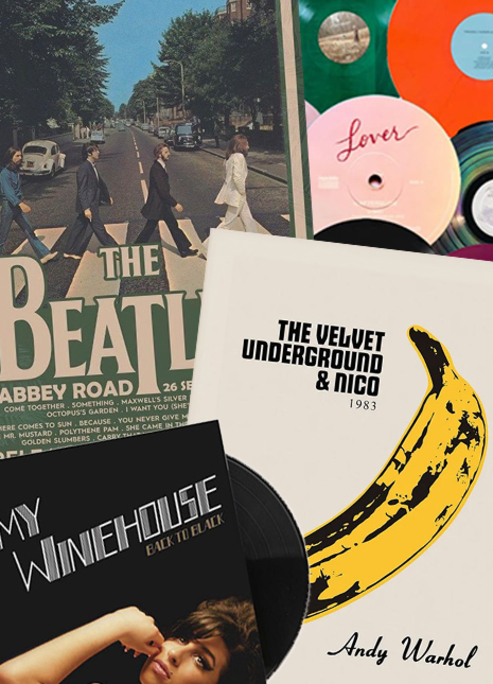Smoking On The Truth: How To Be More Blunt
It's time to get your voice heard.
Dear Diary,
I'm the kind of girl who files the jagged edges of her words so they don't cut other people. I dot my i's with flowers. I intonate the ends of my sentences higher than the start, so I am always asking, never telling. I talk for far too long, and I am sure if I were to win an Oscar the music would cut me off.
What I am trying to say is, I'm not very blunt. Instead of hurtling toward my goals like a ball made of nails, I bounce off toes and float softly in the crowd.
XOXO, 2017 me.
Last year, I wasn't blunt, but I wanted to be. So this year, instead of vowing to cut out sugar, go to the gym, or call my mum more often, I decided 2018 would be the year of bluntness, and that my slogan would fittingly be, 'just because you're blunt doesn't make you a cunt.'
Before I began, I really wanted to investigate the root of my round-aboutness. At first, I thought it might be gender-related, and there was some support for this theory. In 1975, Robin Lakoff published the influential book Language and Woman’s Place. Lakoff postulated that women's lack of perceived assertiveness was likely due to speech patterns and language choices. For example, women were found to use tag questions like, “you'll be home by six 'o' clock, right?” and super-polite forms like, “would you mind if...”. They also avoided coarse language, and used interrogative intonations in declarative statements, which basically expresses uncertainty.
However, I was reluctant to agree with an explanation of my behavior made by a book written in the '70s with “Woman's Place” in the title. Between the lines, of course it was going to affirm that a woman's place was nothing other than second. Fortunately for me, recent research disputes many of its claims.
A large 2016 study of gender and language concluded that women are warmer but actually slightly more assertive than men. It basically blew my “I'm not blunt cause I'm a lady” assumption out of the water. So, as I continued to ponder the reason for my lack of assertion, I began to think, perhaps it was the thinking that was the problem.
Last year, I was your classic over-thinker. Every text, every conversation I had, threw a string of new questions and observations into my mind. What did they mean when they said that? Did I come off rude? I wonder where she got her flamingo pants from. Why are flamingos pink? It's cause of shrimp, right? Make sure I Google that later.
My life sometimes felt like a movie with the director's commentary turned on. Except it was a really shitty and unnecessary commentary. Imagine Michael Bay on Rohypnol with a small concussion, talking about the dramatic relevance of toilet paper. That was what I was dealing with.
This commentary meant that every interaction was more complex than it needed to be and felt scary. I would avoid treading on the toes of anyone I spoke to, which meant my interactions weren't genuine. Interjection: I have now concluded my self-analysis was due to my binge-watching of Dr Phil as a kid. Aaand continue. Regardless, I already had my diagnosis and I knew I needed to get to the bottom of the problem.
To remedy my affliction, I consciously started to treat interactions like they had a word-count tally attached. Instead of giving a long list of reasons why I couldn't or didn't want to do something, I would focus on one: “I don't want to come because I am tired.” Which was a nice edit from my old, “I would really 100 percent love to come, cause it sounds so good, but I have had such a crazy long week, and I am so tired, and my mum gets here next week so I should clean my house. And I think I might need more iron in my diet, and that makes me more tired. You had a problem with low iron, right?”
Non-verbal cues also became an important tool. Things like maintaining eye contact, not fidgeting and being level to the person I was talking to made interactions feel more direct. And I've also turned down that commentary. Because I'm beginning to realize that what your brain thinks is happening often isn't.
A friend directed me to a study by Columbia University, that concluded that many people think they are more aggressive than they are. In a group, 57 percent of the participants viewed their interaction as aggressive, when it actually wasn't. And newsflash, people have their own stuff going on, so most of the time they aren't that concerned with you. Do you leave every conversation with a critique of that person? No, you're thinking about a myriad of other stuff. And so is everyone you talk to. So don't stress.
It was awkward and unnatural at first, like eating ice cream in the shower. But the more I practised, the easier it got. It was like exercise, I just had to keep going.
Want to get pizza for lunch? No, I had pizza last night, I'd prefer Thai.
Could you help me with this deadline? Yes, I can, once I finish my work.
Are you coming out tonight? No, I'm tired and I'd rather stay in watching Dr Phil reruns.
Now, I am an overused knife. I'm a pencil after an exam. I am blunt. And it doesn't feel rude or aggressive; it feels honest. Because if you really think about, being blunt is being honest, and that's a really good thing.
Next up, find your force: how to overcome your social anxiety.












